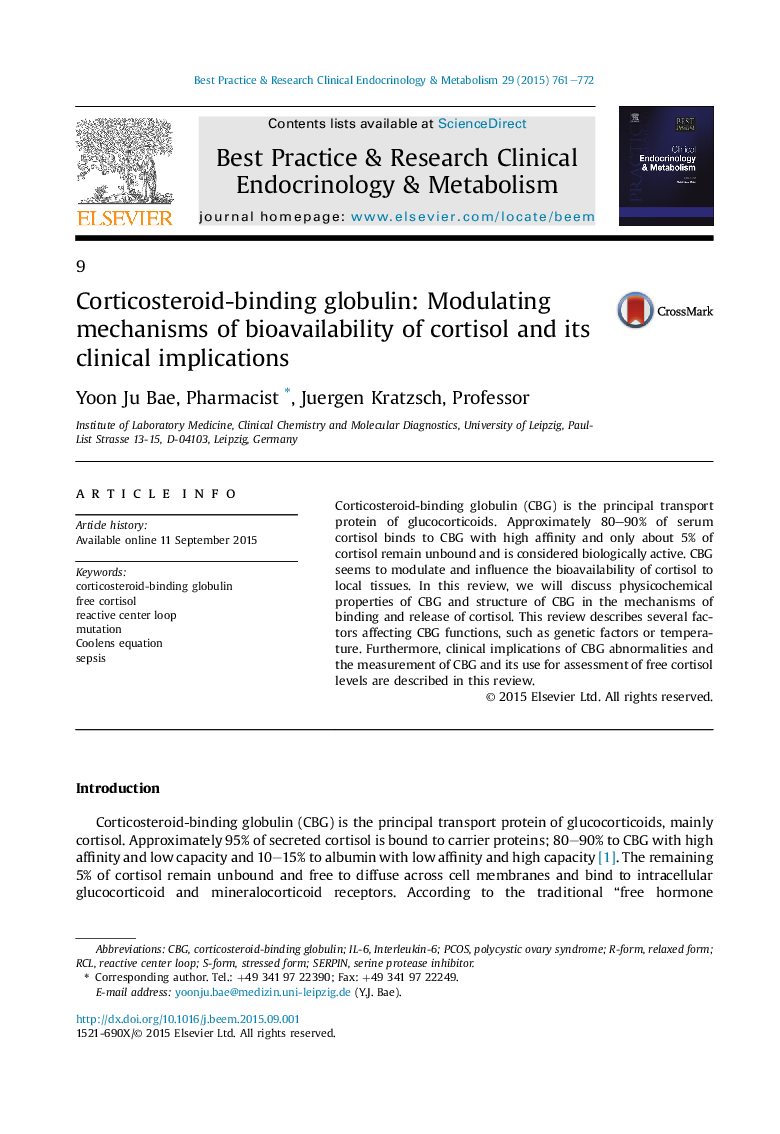| Article ID | Journal | Published Year | Pages | File Type |
|---|---|---|---|---|
| 2791515 | Best Practice & Research Clinical Endocrinology & Metabolism | 2015 | 12 Pages |
Abstract
Corticosteroid-binding globulin (CBG) is the principal transport protein of glucocorticoids. Approximately 80–90% of serum cortisol binds to CBG with high affinity and only about 5% of cortisol remain unbound and is considered biologically active. CBG seems to modulate and influence the bioavailability of cortisol to local tissues. In this review, we will discuss physicochemical properties of CBG and structure of CBG in the mechanisms of binding and release of cortisol. This review describes several factors affecting CBG functions, such as genetic factors or temperature. Furthermore, clinical implications of CBG abnormalities and the measurement of CBG and its use for assessment of free cortisol levels are described in this review.
Keywords
Related Topics
Life Sciences
Biochemistry, Genetics and Molecular Biology
Endocrinology
Authors
Yoon Ju Bae, Juergen Kratzsch,
